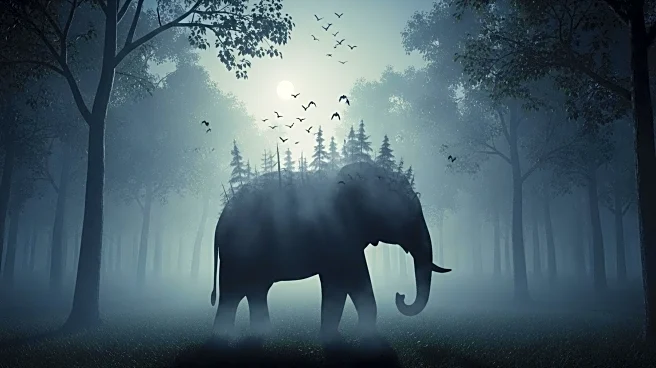What's Happening?
National Geographic Documentary Films has acquired the streaming rights to Werner Herzog's latest documentary, 'Ghost Elephants,' which premiered at the Venice Film Festival. The film, directed and narrated by Herzog, follows conservation biologist Steve Boyes in his quest to find a mythical herd of ghost elephants in Angola. The documentary explores themes of imagination and reality, drawing parallels to Herzog's previous works that delve into the obsessions and dreams of individuals. 'Ghost Elephants' will be available on Disney+ and Hulu, expanding its reach to a global audience.
Why It's Important?
The acquisition of 'Ghost Elephants' by National Geographic underscores the continued interest in environmental and conservation-themed documentaries. Herzog's film brings attention to the mysteries of wildlife and the efforts of conservationists, potentially inspiring public interest and support for environmental causes. The documentary's release on major streaming platforms like Disney+ and Hulu ensures wide accessibility, contributing to the growing trend of streaming services as key distributors of documentary content. This move also highlights National Geographic's commitment to showcasing impactful stories that resonate with global audiences.
What's Next?
Following its premiere at Venice, 'Ghost Elephants' is set to have its U.S. debut at the Telluride Film Festival. The documentary's release on streaming platforms in 2026 will likely attract viewers interested in wildlife conservation and Herzog's unique storytelling approach. National Geographic may leverage the film's themes to promote awareness and engagement in conservation efforts. The success of 'Ghost Elephants' could influence future collaborations between Herzog and major documentary distributors, further cementing his legacy in the genre.
Beyond the Headlines
Herzog's exploration of the 'ghost elephants' taps into broader themes of myth and reality, reflecting cultural narratives about the natural world. The documentary invites viewers to consider the intersection of science and imagination, challenging perceptions of what is known and unknown. It also raises questions about the role of storytelling in conservation, highlighting how narratives can drive interest and action in preserving wildlife and ecosystems.











